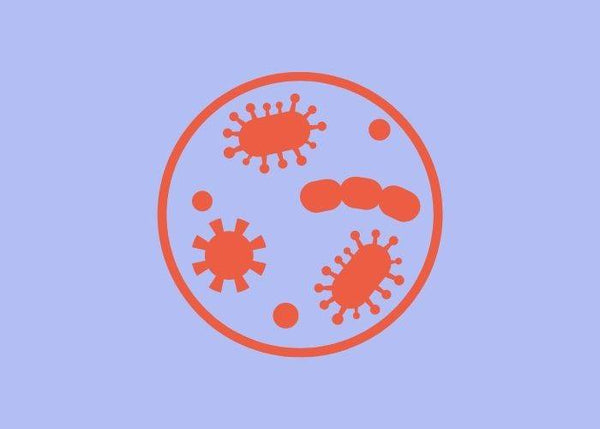The 3 components everyone should know about recurrent UTIs
Your urogenital health (that is, your vaginal health and bladder health) is all related.

Ureaplasma is a bacteria that lives in the respiratory and the urogenital parts of both males and females and is typically transmitted through sexual intercourse. If ureaplasma becomes too dominant, it can cause a UTI. Ureaplasma may not present in a standard urine culture and may go undiagnosed or be incorrectly diagnosed as Interstitial Cystitis (IC).

Yes, UTIs and constipation are connected. If you're experiencing constipation, it's time to take a look at your pelvic floor.

A UTI test strip and dipstick test for leukocytes and nitrites in the urine. When your urine is nitrite positive, it likely means there’s a bacterial infection. Leukocyte negative means that the amount of white blood cells in your urine are low and not secreting leukocyte esterase, which is a compound white blood cells excrete when they’re activated, or fighting off an infection.

We’re here to support you on every step of your journey, including understanding how UTIs symptoms can show up for different people. UTIs can often feel debilitating, and adding back pain into the mix can make you feel even worse. If you notice a dull, aching pain or sharp discomfort in your back while dealing with a UTI, it's important to seek treatment from your healthcare provider. This way, you can stop the infection from becoming more severe.

While it's physically possible to have sex with a UTI, it's generally not advised to have sex during an active UTI. Anecdotally, having sex with a UTI can feel uncomfortable. Since a UTI is an active infection of the urinary tract, it could also worsen your symptoms, and potentially introduce more bacteria into your urinary tract. It’s generally recommended to hold off on sexual activities until UTI symptoms have cleared. There are a few sexual and urinary health measures that can support you in getting proactive about your urinary health, like peeing before and after sex, and making informed choices about lubrication.

UTIs and pelvic floor health are common urinary health concerns for the trans community. Aleece Fosnight, PA-C explains.

Amelia Glynn is a former journalist and current brand writer for health and wellness startups. She’s also a grateful Uqora customer.

My name is Crystal Liu, I am 39 year old living in San Diego. I am here to tell you that life doesn’t end with an IC diagnosis.

The link between our physical and mental health explained by four mental health specialists.

You are not alone if you think you are getting too many urinary tract infections (UTIs). Frequent (or recurrent) UTIs are common, especially in women.

How bacteria use biofilms to protect themselves from antibiotics, the immune system, and cause recurring UTIs that are difficult to fight.

There are many available methods for testing for urinary tract infections (UTIs). This is an overview of the current approaches to testing.

The last decade has brought many milestones in the world of UTI research.

UTIs can become a big problem for women starting in menopause, and getting one UTI can mean a high-risk for more.

IC can possibly be explained by two types of recurrent UTIs: UTIs caused by hidden bacteria and UTIs caused by uncommon bacteria.

Your urogenital health (that is, your vaginal health and bladder health) is all related.